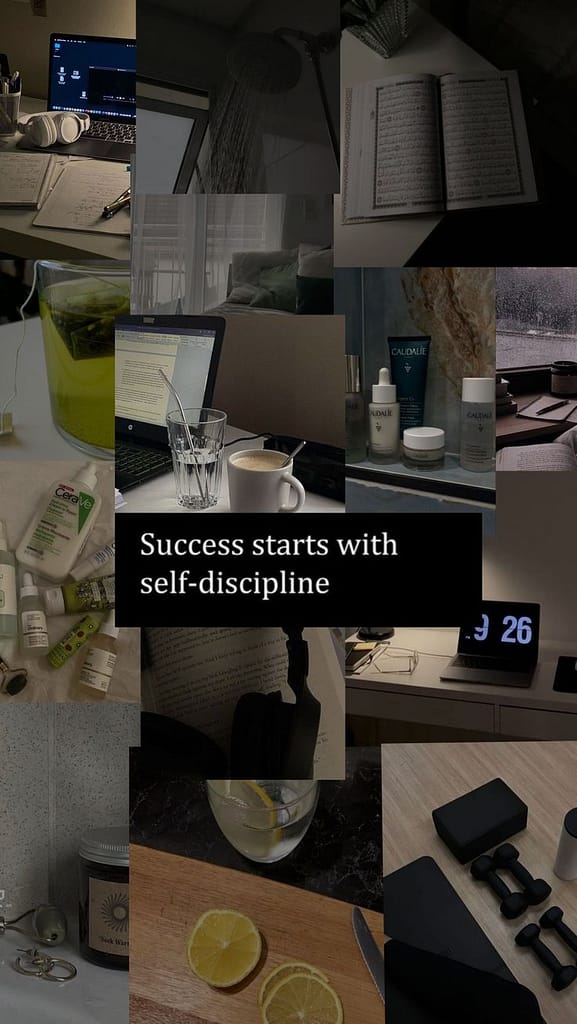
In the pursuit of personal growth and success, one skill stands out as a cornerstone—self-discipline. The ability to control your impulses, stay focused, and consistently work towards your goals is a trait that can transform your life. In this in-depth guide, we’ll explore the strategies and mindset shifts necessary for building robust self-discipline. Whether you’re aiming to enhance your productivity, achieve fitness milestones, or master a new skill, cultivating self-discipline is the key to unlocking your full potential.
Understanding the Essence of Self-Discipline
Embarking on a journey to build self-discipline requires a profound understanding of its essence. Self-discipline is not merely about willpower; it’s a holistic approach to aligning your actions with your long-term goals. It involves creating habits and routines that propel you forward, even when motivation wanes. This multifaceted concept encompasses time management, goal-setting, and the cultivation of positive habits that stand the test of time.
Understanding the Importance of Self-Discipline
Self-discipline is the force that propels you forward when motivation wanes. It’s the guiding hand that helps you navigate distractions and stay on course. In the journey of personal development, self-discipline acts as the compass, steering you towards your aspirations. The ability to adhere to a set of principles, regardless of external factors, is what separates those who achieve their goals from those who merely dream.
The Psychology Behind Self-Discipline
The Power of Goal Setting

One of the fundamental pillars of self-discipline is goal setting. Clear, well-defined goals provide a roadmap for your efforts. When you have a destination in mind, every step becomes purposeful. Begin by establishing both short-term and long-term goals. These milestones act as checkpoints, allowing you to measure progress and adjust your strategy accordingly.
In addition to setting clear goals, understanding the power of incremental progress is crucial. Furthermore, breaking down larger goals into smaller tasks not only makes them more manageable but also allows you to celebrate small victories, fostering a sense of accomplishment.
Breaking Down Goals into Manageable Tasks
To avoid feeling overwhelmed, break down your larger goals into smaller, more manageable tasks. This not only makes the journey less daunting but also allows you to celebrate victories along the way. Each small achievement serves as a building block for the next, creating a sense of momentum that fuels your self-discipline.
Creating a Disciplined Daily Routine

The Power of Consistency
Discipline thrives on routine. Consistency in your daily actions forms the basis for ingrained habits. Establishing a routine not only enhances efficiency but also eliminates decision fatigue. When certain actions become automatic, you conserve mental energy for more complex tasks, reinforcing your overall self-discipline.
Prioritizing Tasks Effectively
A disciplined individual understands the importance of prioritization. Identify the most critical tasks each day and tackle them first. This proactive approach ensures that even if unexpected challenges arise, you’ve already made progress on your most important objectives.
Effective prioritization is the linchpin of self-discipline. Not all tasks are created equal, and distinguishing between what’s urgent and what’s important is paramount. By prioritizing tasks based on their significance, you ensure that your efforts are channeled into activities that align with your overarching goals, preventing time wastage on non-essential pursuits.
Additionally, the art of prioritization extends beyond daily tasks. It involves evaluating your long-term goals and aligning your daily actions with the bigger picture. This strategic approach ensures that your efforts contribute meaningfully to your overarching objectives.
The Role of Saying No
Learning to say ‘no’ is a powerful aspect of self-discipline. Overcommitting can lead to burnout and dilute your focus. By carefully selecting your commitments, you preserve energy for activities aligned with your goals.
Overcoming Challenges: Developing a Resilient Mindset

Embracing Failure as a Stepping Stone
Failure is not the end but a stepping stone towards success. A disciplined individual views setbacks as opportunities to learn and grow. Instead of being discouraged, use failure as feedback, adjusting your approach for future endeavors.
The path to self-discipline is not without its bumps, and embracing failure as a natural part of the journey is essential. Rather than viewing setbacks as insurmountable roadblocks, see them as opportunities for growth and learning. Analyze the factors contributing to the setback, adjust your approach, and forge ahead with newfound insights.
Furthermore, adopting a growth mindset transforms setbacks into stepping stones. Instead of being deterred by failure, view it as a feedback mechanism that guides your refinement process. This shift in perspective cultivates resilience, a key attribute of individuals with robust self-discipline.
The Impact of Mindfulness
Mindfulness, often associated with meditation, is a potent tool for developing self-discipline. By training your mind to stay present and focused, you can resist distractions and make decisions aligned with your goals. Incorporate mindfulness practices into your daily routine to enhance your overall discipline.
In the era of constant connectivity, maintaining focus has become a rare and invaluable skill. Cultivating mindfulness, the practice of being fully present in the moment, is a potent tool for enhancing focus and concentration. Mindfulness not only mitigates the impact of distractions but also sharpens your awareness, enabling you to make intentional choices aligned with your goals.
In addition to improving focus, mindfulness fosters a heightened sense of self-awareness. By being attuned to your thoughts and emotions, you can identify potential obstacles to discipline, allowing you to address them proactively.
Practical Tips for Building Self-Discipline
Setting Realistic Expectations
While ambition is commendable, setting realistic expectations is crucial for maintaining self-discipline. Unrealistic goals can lead to frustration and a sense of failure, undermining your overall progress. Strike a balance between ambition and feasibility.
Visualization Techniques
Harness the power of visualization to reinforce your commitment. Envision yourself achieving your goals with vivid detail. This mental imagery not only enhances motivation but also creates a sense of familiarity with success, making it an integral part of your self-discipline journey.
Maintaining Physical and Mental Well-Being
Cultivating Healthy Habits
Physical health is intertwined with self-discipline. Regular exercise, proper nutrition, and sufficient sleep contribute to increased energy levels and mental clarity. Prioritize these aspects to fortify the foundation of your self-discipline.
Positive Affirmations for Mental Resilience
The words you speak to yourself matter. Positive affirmations can rewire your mindset, fostering mental resilience and fortifying your commitment to self-discipline. Integrate affirmations into your daily routine to cultivate a more optimistic and disciplined outlook.
Strategies for Staying Disciplined in a Digital Age
Managing Distractions
In an era of constant connectivity, managing digital distractions is paramount. Turn off non-essential notifications, create a dedicated workspace, and set specific times for focused work. These strategies will help you resist the allure of digital diversions and maintain your self-discipline.
Leveraging Technology for Productivity
While technology can be a source of distraction, it can also be a powerful ally in building self-discipline. Explore productivity apps, time management tools, and goal-tracking software to streamline your efforts and stay on track.
Building Self-Discipline in a Social Context
The Role of Accountability Partners
Sharing your goals with a trusted friend, family member, or mentor can provide both support and accountability. Knowing that someone else is aware of your objectives can significantly boost your commitment and discipline.
Navigating Social Influences
Surround yourself with a supportive community that aligns with your goals. Whether online or offline, being part of a like-minded group fosters a positive environment that reinforces your commitment to self-discipline.
Reflecting on Your Self-Discipline Journey
The Power of Regular Reflection
Periodically reflect on your self-discipline journey. Assess what strategies are working well, what needs adjustment, and how you can continue to refine your discipline. This introspection is vital for sustained growth and progress.
In the quest for personal growth and success, self-discipline is the linchpin that holds everything together. It’s the daily commitment to your goals, the resilience in the face of challenges, and the unwavering focus on what truly matters. By understanding the psychology behind self-discipline, establishing a disciplined routine, and adopting a mindset of continuous improvement, you can cultivate a robust sense of discipline that propels you towards your aspirations. Remember, building self-discipline is a journey, not a destination. Celebrate your victories, learn from your setbacks, and embrace the transformative power of disciplined living.




0 Comments